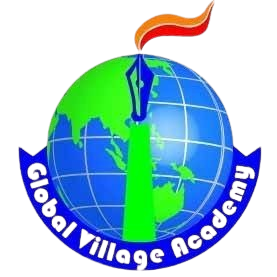
Every year, thousands of Bangladeshi students dream of studying abroad—but for many, high tuition fees and living costs become major obstacles. The good news is that hundreds of fully funded and partially funded scholarships are available for Bangladeshi students in countries like Japan, USA, Canada, UK, Australia, Germany, China, Malaysia, South Korea, and more.
Whether you are a school student, university student, or working professional, this guide explains exactly how to get a scholarship to study abroad from Bangladesh—step by step. It includes requirements, application tips, scholarship types, and country-specific opportunities to help you win funding and start your international journey.
Why Scholarships Are Now More Accessible for Bangladeshi Students
In the past, international scholarships were extremely competitive for Bangladeshi applicants. But today, foreign universities and governments actively offer more scholarships to students from Bangladesh due to:
- Bangladesh’s strong growth in education
- High-performing graduates
- Diversity value in global classrooms
- International partnerships with Bangladeshi institutions
This means your chances of getting a study abroad scholarship are higher than ever, if you apply strategically.
How to Get a Scholarship to Study Abroad from Bangladesh: Step-by-Step Guide
1. Choose the Right Country Based on Scholarship Availability
Not all countries offer the same level of funding. Some provide more generous scholarships to Bangladeshi students.
Countries with the highest number of scholarships:
- Japan (MEXT, JASSO)
- South Korea (GKS Scholarship)
- China (CSC Fully Funded Scholarship)
- Germany (DAAD Scholarships)
- USA (Fulbright, university scholarships)
- UK (Chevening, Commonwealth)
- Australia (Australia Awards, RTP)
- Canada (Global Affairs Canada Scholarships)
- Malaysia, Turkey, Hungary, Netherlands
Choosing a country with strong scholarship programs increases your chances of success.
2. Prepare a Strong Academic Profile
Scholarship committees look for students with strong academic potential. This doesn’t mean you must have a perfect GPA—but you must show consistent improvement and dedication.
Ways to strengthen your academic profile:
- Maintain good CGPA (3.0+ is recommended; 3.5+ is strong)
- Participate in academic competitions
- Get involved in research projects
- Publish papers (for Masters/PhD applicants)
- Join clubs, debates, volunteer groups
- Attend workshops, trainings, or seminars
A strong academic background significantly increases your scholarship chances.
3. Improve Your English Proficiency (IELTS/TOEFL)
Most international scholarships require English proficiency.
Recommended scores:
- IELTS 6.0–7.5
- TOEFL 80–100+
Higher scores improve your chances of winning merit-based or fully funded awards.
Some countries (Germany, Netherlands, UK) offer extra consideration for high English scores.
4. Write a Powerful SOP/Motivation Letter
Your Statement of Purpose (SOP) or Motivation Letter is one of the MOST important parts of a scholarship application.
A strong SOP should include:
- Your background
- Your academic goals
- Why you chose the country and program
- Your future career plan
- How the scholarship will help you
- What you will contribute to the university
Your SOP should reflect passion, ambition, and clarity. Most Bangladeshi students fail because they copy templates—never do this. Your SOP must be unique.
5. Get Strong Recommendation Letters
Universities often require 2–3 recommendation letters.
Who can write your recommendation?
- University teachers
- Research supervisors
- Employers (if applying after work experience)
A strong recommendation letter should highlight:
- Your academic potential
- Leadership skills
- Research ability
- Character and commitment
Good recommendation letters help you stand out from other Bangladeshi applicants.
6. Prepare for Scholarship Exams (If Required)
Some fully funded scholarships require exams like:
- GRE (USA & Canada)
- GMAT (Business schools)
- JLPT/Topik (Japan/Korea language programs)
Although not always mandatory, a good score can dramatically improve your chances.
7. Search and Apply Early
Most scholarships from Bangladesh close 6–12 months before the academic year starts.
Applying early increases:
- Acceptance chances
- Scholarship success
- Visa approval
- Accommodation availability
Late applications are often ignored, no matter how strong.
Top Scholarships for Bangladeshi Students in 2025
- MEXT Scholarship (Japan – Fully Funded)
Covers tuition, monthly allowance, airfare. Ideal for: Undergraduate, Masters, PhD - Global Korea Scholarship (GKS – Fully Funded)
Covers full tuition, dorm, stipend, medical insurance. Ideal for: Bachelor’s, Masters, PhD - Chinese Government Scholarship (CSC – Fully Funded)
Covers full tuition + monthly stipend. Great for engineering, science, IT. - DAAD Scholarship (Germany – Fully Funded)
Excellent for Masters & PhD applicants with strong academics. - Fulbright Scholarship (USA – Fully Funded)
One of the most competitive but prestigious scholarships. - Chevening Scholarship (UK – Fully Funded)
Covers full tuition, accommodation, and living costs. - Australia Awards Scholarship (Fully Funded)
One of the largest scholarship programs for Bangladeshi students. - Erasmus Mundus Scholarship (Europe – Fully Funded)
A life-changing program offering joint degrees across multiple EU countries.
Common Mistakes Bangladeshi Students Should Avoid
- Copying SOP from the internet
- Applying without reading guidelines
- Using poor English in application
- Missing deadlines
- Submitting incomplete documents
- Not checking email regularly
- Fake bank statements
- Weak academic explanations
Proper preparation can solve all of these.
Final Tips to Win Overseas Scholarships as a Bangladeshi Student
- Start preparing 6–12 months early
- Apply to multiple countries & universities
- Build a strong CV
- Improve English test scores
- Write a powerful SOP
- Network with alumni
- Use email professionally
- Follow application guidelines carefully
With consistent effort, ANY Bangladeshi student can secure a fully funded or partially funded scholarship abroad.
